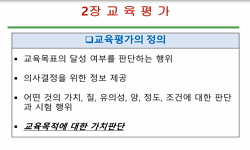In this paper, we propose the performance evaluation of granular model instead of the conventional performance index, which is a root mean square error. In contrast to most fuzzy models developed in the previous researches, the outputs obtained by gra...
http://chineseinput.net/에서 pinyin(병음)방식으로 중국어를 변환할 수 있습니다.
변환된 중국어를 복사하여 사용하시면 됩니다.
- 中文 을 입력하시려면 zhongwen을 입력하시고 space를누르시면됩니다.
- 北京 을 입력하시려면 beijing을 입력하시고 space를 누르시면 됩니다.
https://www.riss.kr/link?id=A102260845
- 저자
- 발행기관
- 학술지명
- 권호사항
-
발행연도
2016
-
작성언어
English
- 주제어
-
KDC
004
-
등재정보
KCI등재
-
자료형태
학술저널
- 발행기관 URL
-
수록면
135-141(7쪽)
-
KCI 피인용횟수
0
- 제공처
-
0
상세조회 -
0
다운로드
부가정보
다국어 초록 (Multilingual Abstract)
In this paper, we propose the performance evaluation of granular model instead of the conventional performance index, which is a root mean square error. In contrast to most fuzzy models developed in the previous researches, the outputs obtained by granular models have the form of information granules rather than plain numeric entities. Thus, we use a concept of information granularity as a network of information granules with contexts produced in the output space and a set of information granules formed in the input space. Granular model is constructed by information granules that are extracted by specialized context-based fuzzy clustering. Furthermore, this model is designed by the rules connecting the association of information granules obtained in input-output space. The performance evaluation method of granular model needs new criterion, because the output of granular model has triangular fuzzy number. The performance index is expressed by the product between fuzzy coverage of predicted output and specificity of information granules. Thus, we can quantify the model output representing information granules. Granular models offer a new performance evaluation method of system modeling by designing models at the level of information granules. For this, we deal with a synthesis function approximation and nonlinear regression and demonstrate the effectiveness of the proposed performance evaluation in the design of granular model.
참고문헌 (Reference)
1 이명원, "인간 중심형 시스템 및 컴퓨팅을 위한 점진적인 방사기저함수 네트워크의 설계" 한국정보기술학회 10 (10): 137-142, 2012
2 W. Pedrycz, "The design of free structure granular mapping : The use of the principle of justifiable granularity" 43 (43): 2105-2113, 2013
3 C. U. Yeom, "Performance index method of granular model based on information granules" 220-221, 2016
4 W. Pedrycz, "Linguistic models and linguistic modeling" 29 (29): 601-612, 1998
5 W. Pedrycz, "Handbook of Granular Computing" John Wiley & Sons 2008
6 O. F. Reyes-Galaviz, "Granular fuzzy models : analysis, design, and evaluation" 64 : 1-19, 2015
7 S. S. Kim, "Development of quantum-based adaptive neuro-fuzzy networks" 40 (40): 91-100, 2010
8 W. Pedrycz, "Designing fuzzy sets with the use of the parametric principle of justifiable granularity" 24 (24): 489-496, 2016
9 W. Pedrycz, "Conditional fuzzy c-means" 17 (17): 625-631, 1996
10 곽근창, "A Design of Granular Model Using Conditional Clustering and Density Peaks" 한국정보기술학회 13 (13): 127-134, 2015
1 이명원, "인간 중심형 시스템 및 컴퓨팅을 위한 점진적인 방사기저함수 네트워크의 설계" 한국정보기술학회 10 (10): 137-142, 2012
2 W. Pedrycz, "The design of free structure granular mapping : The use of the principle of justifiable granularity" 43 (43): 2105-2113, 2013
3 C. U. Yeom, "Performance index method of granular model based on information granules" 220-221, 2016
4 W. Pedrycz, "Linguistic models and linguistic modeling" 29 (29): 601-612, 1998
5 W. Pedrycz, "Handbook of Granular Computing" John Wiley & Sons 2008
6 O. F. Reyes-Galaviz, "Granular fuzzy models : analysis, design, and evaluation" 64 : 1-19, 2015
7 S. S. Kim, "Development of quantum-based adaptive neuro-fuzzy networks" 40 (40): 91-100, 2010
8 W. Pedrycz, "Designing fuzzy sets with the use of the parametric principle of justifiable granularity" 24 (24): 489-496, 2016
9 W. Pedrycz, "Conditional fuzzy c-means" 17 (17): 625-631, 1996
10 곽근창, "A Design of Granular Model Using Conditional Clustering and Density Peaks" 한국정보기술학회 13 (13): 127-134, 2015
동일학술지(권/호) 다른 논문
-
Ka대역 위성통신 네트워크 설계를 위한 위성통신 링크 강우감쇠 분석
- 한국정보기술학회
- 조용완(Yong-Wan Cho)
- 2016
- KCI등재
-
다중 입출력 시스템에서 주파수 선택도에 따른 시간 영역 등화기의 오류 성능에 대한 연구
- 한국정보기술학회
- 강병권(Byeong-Gwon Kang)
- 2016
- KCI등재
-
잡음 환경에서 천공 채널 부호화된 신호의 정규 블록 인터리버 추정
- 한국정보기술학회
- 정진우(Jinwoo Jeong)
- 2016
- KCI등재
-
HF 대역 모노스태틱 및 바이스태틱 레이더의 데이터 압축 성능 비교
- 한국정보기술학회
- 박치환(Chi-Hwan Park)
- 2016
- KCI등재
분석정보
인용정보 인용지수 설명보기
학술지 이력
| 연월일 | 이력구분 | 이력상세 | 등재구분 |
|---|---|---|---|
| 2022 | 평가예정 | 재인증평가 신청대상 (재인증) | |
| 2019-01-01 | 평가 | 등재학술지 유지 (계속평가) |  |
| 2016-01-01 | 평가 | 등재학술지 유지 (계속평가) |  |
| 2012-01-01 | 평가 | 등재학술지 유지 (등재유지) |  |
| 2009-01-01 | 평가 | 등재학술지 선정 (등재후보2차) |  |
| 2008-01-01 | 평가 | 등재후보 1차 PASS (등재후보1차) |  |
| 2006-01-01 | 평가 | 등재후보학술지 선정 (신규평가) |  |
학술지 인용정보
| 기준연도 | WOS-KCI 통합IF(2년) | KCIF(2년) | KCIF(3년) |
|---|---|---|---|
| 2016 | 0.45 | 0.45 | 0.39 |
| KCIF(4년) | KCIF(5년) | 중심성지수(3년) | 즉시성지수 |
| 0.38 | 0.35 | 0.566 | 0.16 |




 DBpia
DBpia





